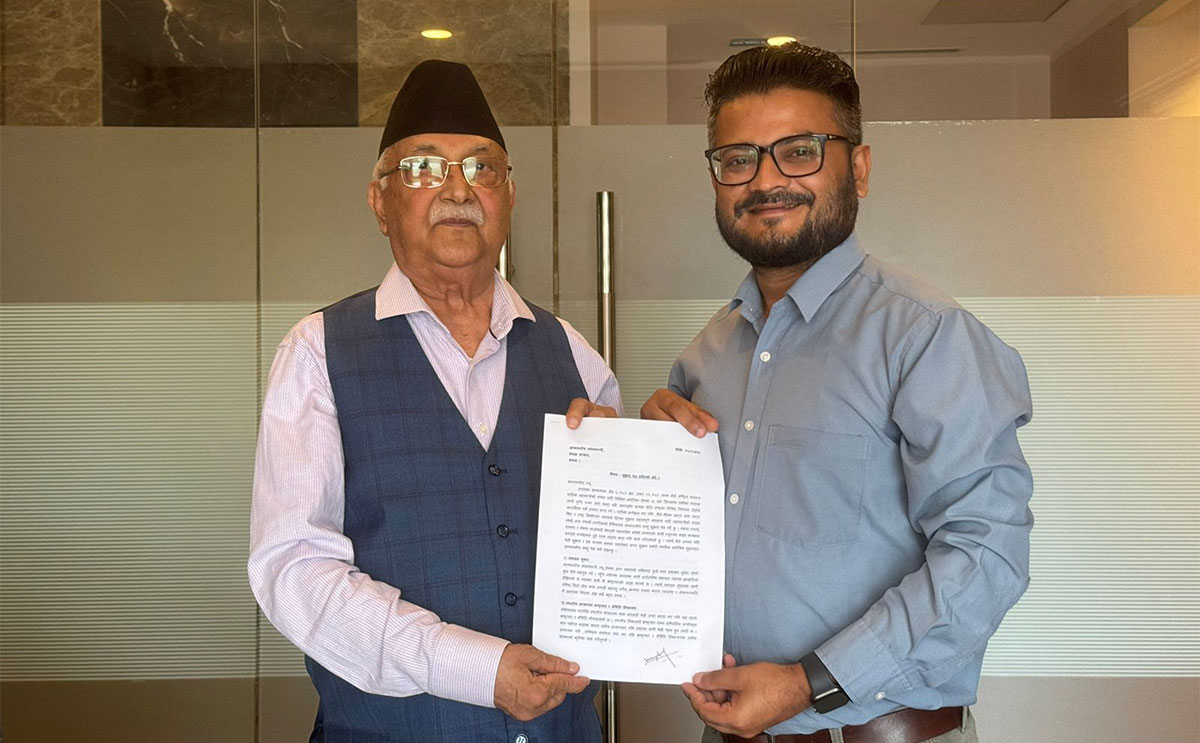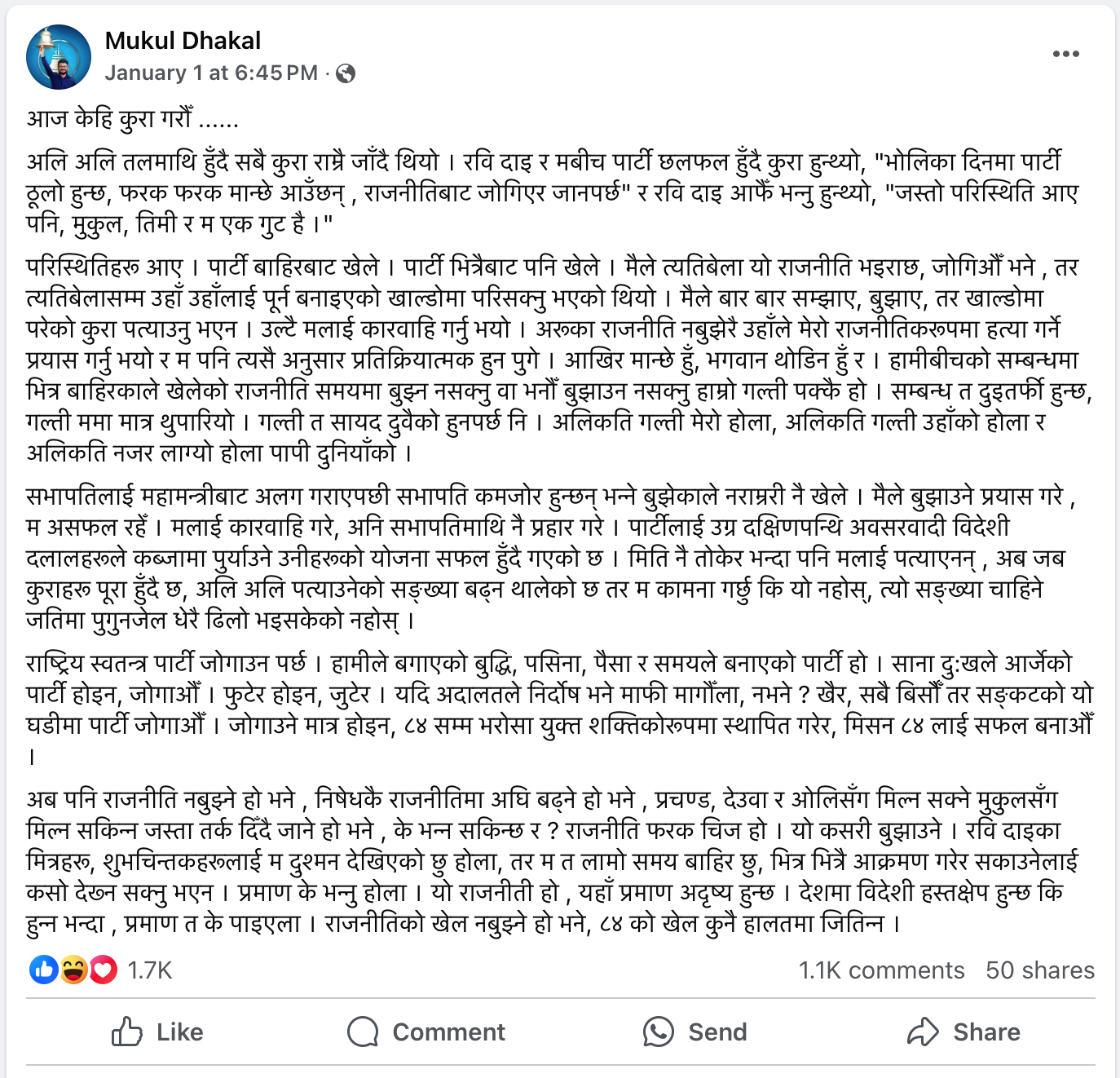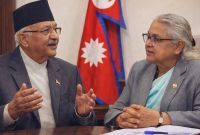Is Rabi an "Indian Agent"? Mukul Dhakal's Statement!

Kathmandu: Former General Secretary of the Rastriya Swatantra Party (RSP), Dr. Mukul Dhakal, has recently made statements that have sparked significant debate in Nepal's political circles. Just a few months ago, Dhakal handed over a memorandum to Prime Minister Khadga Prasad Oli demanding the ousting of Rabi Lamichhane from Nepal. However, he has now made statements in support of Lamichhane, creating controversy around his seemingly inconsistent and politically naive remarks.
Dhakal's Previous Statements
In a memorandum submitted to Prime Minister Oli in Shrawan, Dhakal accused Lamichhane of cooperative fraud, passport misuse, and corruption, suggesting that he deserved imprisonment. Dhakal had labeled Lamichhane as an "Indian agent" and described him as the "root cause of authoritarianism and corruption" within the party.
Dhakal had previously said:
"Rabi Lamichhane has ended democracy within the party. I have evidence of crimes such as cooperative fraud and passport misuse."
Despite these strong allegations, Dhakal has now taken a completely opposite stance, advocating for strengthening Lamichhane’s leadership.
Criticism of Recent Statements
In his latest remarks, Dhakal stated:
"If we continue to misunderstand politics, we cannot save the party. If Rabi is proven innocent, I will apologize. However, we must unite to save the party now."
This sudden reversal has raised numerous questions. Only months ago, Dhakal was adamant about Lamichhane’s alleged crimes and claimed his imprisonment was "inevitable." Now, he emphasizes the necessity of supporting Lamichhane, leaving observers baffled by his inconsistent views.
Contradictions and Unstable Outlook

Dhakal's vacillation between blaming Lamichhane and supporting him has undermined his credibility. Critics argue that his earlier statements branding Lamichhane as an "Indian agent" and his current depiction of Lamichhane as a "savior of the party" are irreconcilable contradictions.
Political analysts have criticized Dhakal, calling him "apolitical and immature," with his shifting narratives reflecting an unstable and opportunistic political outlook.
Context in Nepali Politics
Nepal's political landscape is no stranger to accusations of betrayal and opportunism. The tendency to label rivals as "Indian agents" and then glorify them as heroes is not new. Dhakal's transformation—from accusing Lamichhane of jeopardizing Nepal's sovereignty by colluding with India to portraying him as an indispensable leader—epitomizes this trend.
Dhakal had also accused Lamichhane and Vice President Dr. Swarnim Wagle of compromising Nepal's independence. He alleged that Lamichhane colluded with India, risking the nation's sovereignty to fulfill his ambition of becoming Nepal's Prime Minister.
Conclusion
Dr. Mukul Dhakal must address the questions raised by his contradictory statements:
- Were his earlier claims of Lamichhane being an "Indian agent" unfounded?
- Or is his current portrayal of Lamichhane as "essential for the party" insincere?
Without providing clarity, Dhakal risks further damaging his political credibility. In a political arena where trust and consistency are paramount, Dhakal’s actions have raised serious doubts about his maturity and foresight.
Author's Commentary
Dhakal’s recent remarks reflect a lack of political clarity and foresight. His inconsistent statements and controversial accusations underline the importance of coherence and accountability in Nepal's volatile political environment.
Mukul Dhakal



![From Kathmandu to the World: How Excel Students Are Winning Big [Admission Open]](https://nepalaaja.com/img/70194/medium/excel-college-info-eng-nep-2342.jpg)
